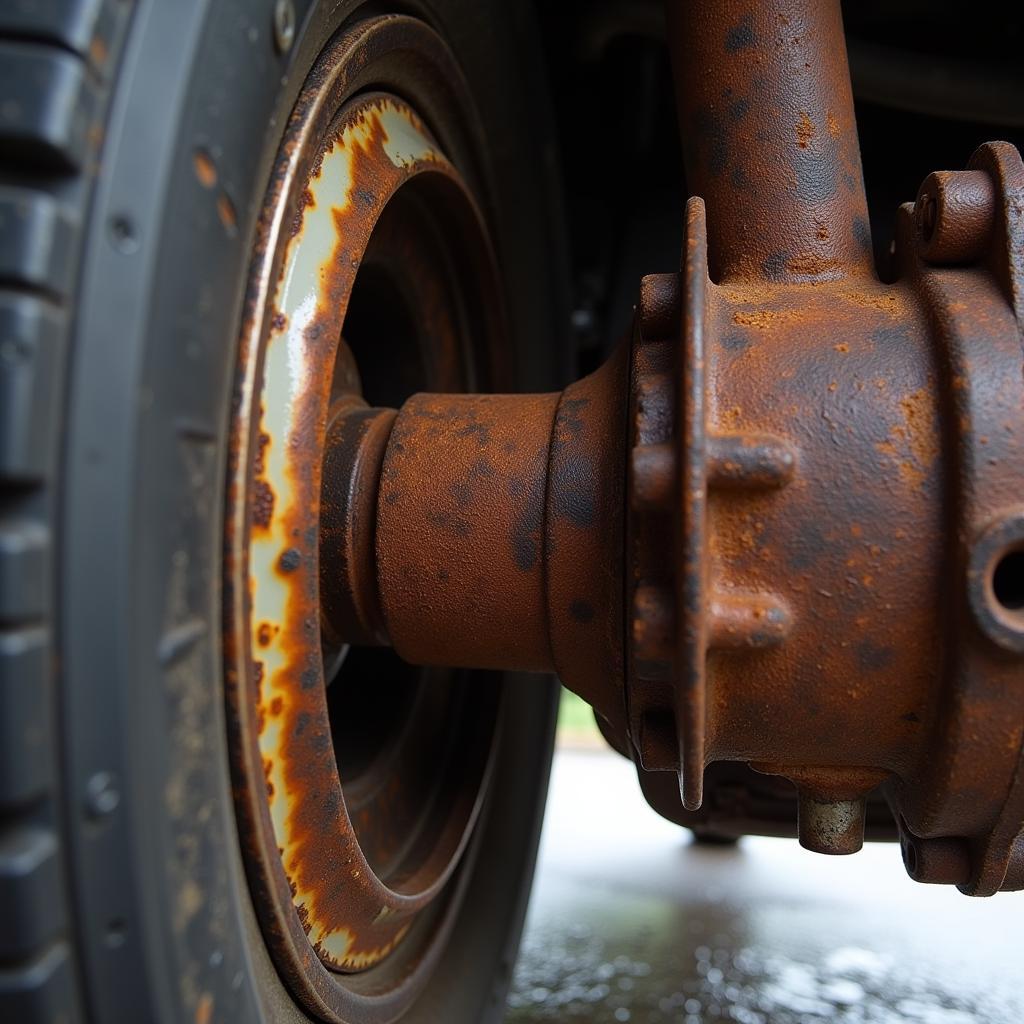Leaving your car parked for a long time can lead to various problems, including battery issues, flat tires, fluid leaks, and more. Understanding these potential issues and taking preventive measures can help you avoid costly repairs and ensure your car remains in good condition.
Common Issues With Cars Sitting Unused
Battery Issues
The most common problem encountered when a car sits idle for extended periods is a dead battery. Cars use battery power even when not running, to power things like the clock, radio, and alarm system. Over time, the battery will drain, and if it’s not recharged regularly, it can die completely.
Tips to Prevent Battery Issues:
- Charge the battery regularly: Even if you’re not driving, try to start the car and let it run for at least 15 minutes every couple of weeks to recharge the battery.
- Use a battery tender: A battery tender is a device that connects to your car’s battery and provides a trickle charge to keep it topped up.
- Disconnect the battery terminals: If you plan on storing your car for a long time, disconnecting the battery terminals will prevent the battery from draining.
Flat Tires
Flat spots can develop on tires when a car sits for an extended period. This is because the weight of the car compresses the tires in the same spot, causing the rubber to flatten. When the car is driven again, these flat spots can cause uneven wear and vibration.
Tips to Prevent Flat Tires:
- Inflate tires to the proper pressure: Make sure your tires are inflated to the recommended pressure level, which is usually found in your car’s owner’s manual.
- Rotate tires regularly: Rotating your tires can help prevent uneven wear and flat spots by distributing the weight of the car more evenly.
- Consider using tire covers: Tire covers can protect your tires from the elements and help prevent flat spots.
Fluid Leaks
Fluids in your car, such as brake fluid, coolant, and power steering fluid, can leak over time. This is because seals can dry out and crack when they are not used regularly.
Tips to Prevent Fluid Leaks:
- Check fluid levels regularly: Before you store your car for an extended period, check all fluid levels and top them off as needed.
- Use a moisture absorber: Place a moisture absorber in your car’s cabin to help prevent moisture buildup that can cause corrosion and fluid leaks.
- Keep your car in a clean and dry environment: Storing your car in a clean, dry place can help prevent leaks and corrosion.
Rust and Corrosion
Metal parts of your car can rust and corrode if they’re exposed to moisture and oxygen. This is especially true if your car is stored in a humid environment.
 Rust and corrosion on a car
Rust and corrosion on a car
Tips to Prevent Rust and Corrosion:
- Wax your car regularly: Waxing your car will create a protective barrier that helps to prevent rust and corrosion.
- Store your car in a dry place: If you’re storing your car for a long time, try to find a dry place to park it, like a garage or a covered parking spot.
- Use a car cover: A car cover can help to protect your car from moisture, dust, and UV rays.
What to Do When You Start Driving Again
- Inspect your car: Before you drive your car again, take some time to inspect it for any obvious problems, such as leaks, flat tires, or damage.
- Change the oil: It’s always a good idea to change the oil after a long period of storage.
- Check the brakes: Make sure your brakes are working properly by testing them gently before you start driving.
- Drive slowly at first: Start driving slowly and gradually increase your speed until you’re comfortable.
Expert Opinions on Car Maintenance
“It’s crucial to remember that even if you’re not driving your car, it still needs regular maintenance. Don’t underestimate the importance of simple tasks like checking fluids and battery levels,” said John Smith, a certified automotive technician with over 20 years of experience.
Mary Jones, a mechanic specializing in classic cars, adds, “Leaving your car unused for too long can result in issues that are easily preventable. Taking preventative measures can save you money and hassle down the line.”
FAQ
Q: How often should I start my car if I’m not driving it regularly?
A: Ideally, you should start your car and let it run for 15-20 minutes every two weeks to keep the battery charged.
Q: What are some signs of a dead battery?
A: Slow cranking, dim lights, or the car not starting at all can indicate a dead battery.
Q: What can I do to prevent rust and corrosion on my car?
A: Regularly waxing your car and storing it in a dry place can help prevent rust and corrosion.
Q: Can I leave my car parked for a year without any problems?
A: It’s not recommended to leave your car parked for a year without taking any preventative measures. You should still check on your car regularly and take steps to maintain it.
For more car maintenance tips and professional assistance, contact AutoTipPro at +1 (641) 206-8880 or visit our office at 500 N St Mary’s St, San Antonio, TX 78205, United States.






Leave a Reply